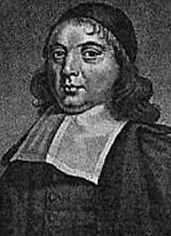
Following the Reformation in the 16th century Devon was one of the most firmly Protestant counties in England
and many churches were Independent in their government taking no notice of popes, princes or magistrates. By
1715 there were 59 nonconformist churches in Devon with congregations totalling 22,000.
In the early 19th century following the Evangelical revival of the 18th century, the Church in Totnes
recognised
the need for organising Christians in Torbay and supported the establishment of a number of churches in
Paignton
(1818), Galmpton (1831), Dittisham (1836), Brixham (1841) and Torquay (1843).
Meetings of Christians for fellowship and worship were held in various houses in Galmpton resulting in the
construction of a building in the centre of the village at the Roundings. Villagers quarried stone, cut timber
and supplied all other materials for the building in order to establish Galmpton Congregational Church and to
start a Sunday school. Close links were established with churches in nearby Brixham and Dittisham with the
sharing of a minister.
In 1870 the chapel was built in Galmpton on Stoke Gabriel Road close to the Roundings facilitated by the gift
of
the land by Mr Tully and by a generous donation of £75 by Mrs Harvey of Greenway House. The building was
named Flavel Chapel in honour of the Reverend John Flavel of Dartmouth, the most famous of Devon's puritan
ministers from the 17th century. The church joined the Congregational Union whose history dates back to the
Independents, a puritan movement from the 16th century. The Church has continued to this day as an
independently
governed local Church where the members have sole responsibility to God for Church finance and the appointment
of the Church officers.
For many years the Church was known as Galmpton Congregational Church but is now named Galmpton Independent
Evangelical Church, a name which better reflects its ministry in the 21st-century. The name of the building as
Flavel Chapel has been retained as the teachings of John Flavel continue to be held in high regard being
firmly
founded on the Holy Scriptures which are the fully inspired written Word of God.
"One word of God can do more than 10,000 words of man to relieve a distressed soul"-quotation from John Flavel
(1630-1691), "The Mystery of Providence".